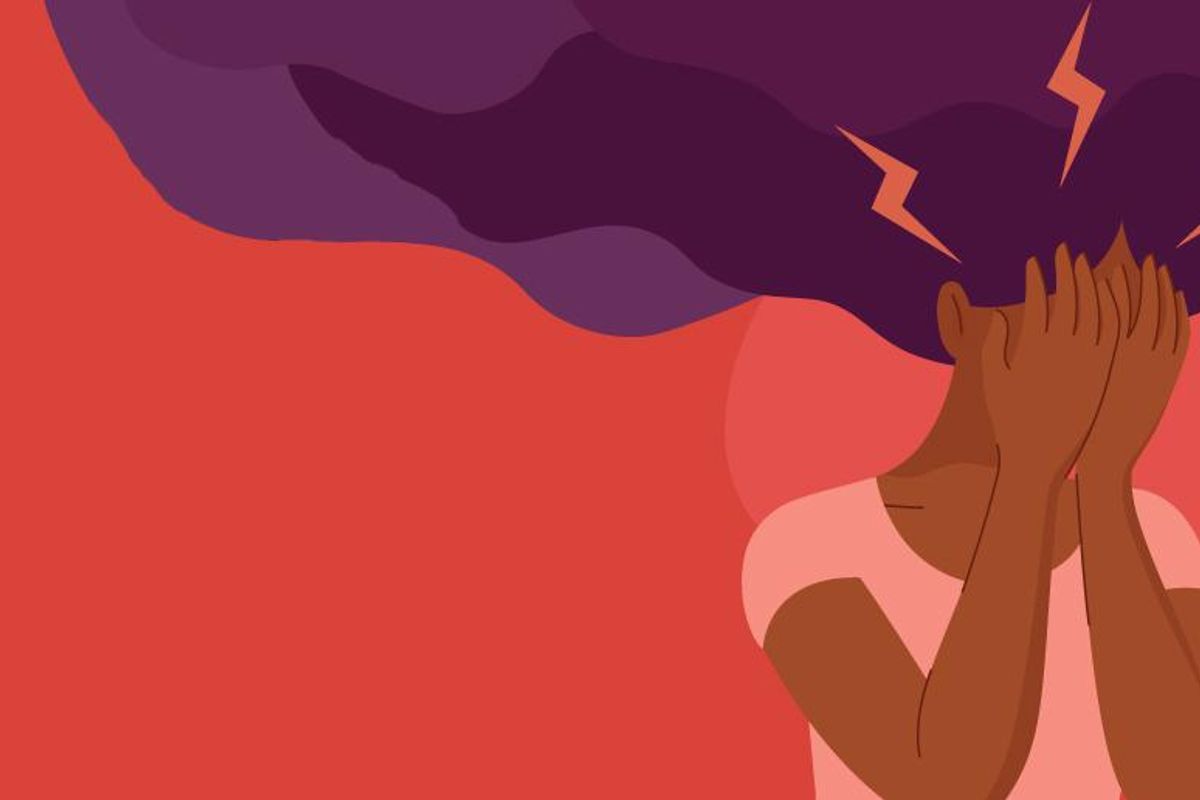June is National Migraine and Headache Awareness Month.
Migraine is a genetic neurologic disease that affects pain processing in the brain.
Migraine disease is 3x more common in women than men, affecting around 1 in 5 women in the United States.
Migraine attacks often have 4 phases, although not everyone experiences all of them.
- Prodrome phase can occur hours to days before the headache and includes symptoms such as fatigue, trouble concentrating and food cravings.
- Aura phase happens right before or at the onset of the pain phase and can last 5 to 60 minutes. Characterized by visual disturbances and numbness/tingling, this phase affects about 20% of people with migraine disease.
- Pain phase (headache) involves moderate to severe head pain and nausea as well as sensitivities to light, sounds and smells.
- Postdrome phase lasts for a day or two after the pain phase and may involve symptoms such as fatigue and mood swings.
Migraine is not a trigger-driven disease, meaning we can’t always predict or prevent attacks. However, some women find migraine attacks are triggered by:
- Fluctuating hormone levels during the menstrual cycle
- Stress
- Anxiety
- Lack of sleep
- Skipped/irregular meals
Common dietary migraine triggers include:
- Red wine and beer
- Aged cheese
- Caffeine
- Fermented foods
- Nitrates and nitrites as preservatives
- Monosodium glutamate (MSG)
- Artificial sweeteners, such as aspartame
Trigger or craving? If you crave — and eat — certain foods (like carbohydrates or chocolate) during the prodrome phase of a migraine attack, it may seem like these foods are triggers when actually the migraine was already happening and the craving was part of it.
Migraine triggers are different for everyone. Keeping a “migraine diary” with notes about your diet, sleep habits and menstrual cycle may help you figure out what (if anything) triggers your attacks.
When it comes to preventing migraine attacks, consistency is key!
- Set a sleep schedule
- Eat regular meals
- Keep stress levels low
- Discuss preventive medications with your healthcare provider (HCP)
Talk to your HCP if you’d like more information on managing migraine disease.
- How to Know If You're Experiencing Migraine - HealthyWomen ›
- Fact Facts: Everything You Need to Know About Migraine Disease ... ›
- When It's More Than Just a Bad Headache ›
- I Finally Figured Out What Was Causing My Migraines - HealthyWomen ›
- Self-Care for Migraines - HealthyWomen ›
- Questions and Answers About Migraine Disease - HealthyWomen ›
- I Can't “Push Through the Pain” with a Migraine - HealthyWomen ›
- For Years, I Didn’t Know I Had Menstrual Migraines - HealthyWomen ›
- Pasé años sin saber que tenía migrañas menstruales - HealthyWomen ›
- The Relationship Between Migraine and Mental Health - HealthyWomen ›







